Related Research Articles

Hendrikus Johannes "Johan" Witteveen was a Dutch politician and economist who served as the fifth managing director of the International Monetary Fund (IMF) from 1973 to 1978.

Hugo Marie de Vries was a Dutch botanist and one of the first geneticists. He is known chiefly for suggesting the concept of genes, rediscovering the laws of heredity in the 1890s while apparently unaware of Gregor Mendel's work, for introducing the term "mutation", and for developing a mutation theory of evolution.
Diederik Johannes Korteweg was a Dutch mathematician. He is now best remembered for his work on the Korteweg–de Vries equation, together with Gustav de Vries.
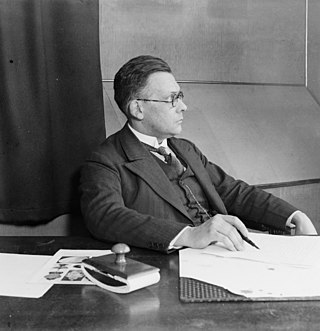
Jan Pieter Marie Laurens de Vries was a Dutch philologist, linguist, religious studies scholar, folklorist, educator, writer, editor and public official who specialized in Germanic studies.

Isaac Lazarus Israëls was a Dutch painter associated with the Amsterdam Impressionism movement.

The Rijksakademie van beeldende kunsten was founded in 1870 in Amsterdam. It is a classical academy, a place where philosophers, academics and artists meet to test and exchange ideas and knowledge. The school supports visual artists with a two-year curriculum.

Willem Hendrik Buiter CBE is an American-British economist. He spent most of his career as an academic, teaching at various universities. More recently, he was the Chief Economist at Citigroup.
Jonathan Irvine Israel is a British historian specialising in Dutch history, the Age of Enlightenment, Spinoza's Philosophy and European Jews. Israel was appointed as Andrew W. Mellon Professor in the School of Historical Studies at the Institute for Advanced Study, Princeton, New Jersey, in January 2001 and retired in July 2016. He was previously Professor of Dutch History and Institutions at the University College London.

Jan Pieter Veth was a Dutch painter, poet, art critic and university lecturer. He is especially noted as a portrait painter. Amongst his sitters were Max Liebermann, Lambertus Zijl, Frank van der Goes, Antoon Derkinderen and other contemporaries including various fellow painters.
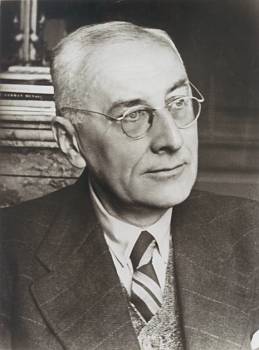
Nicolaas Wilhelmus Posthumus or N.W. Posthumus was a Dutch economic historian, political scientist, and professor at Erasmus University Rotterdam.

Frans Maurits Jaeger was a Dutch chemist and specialist in the history of chemistry. He is known for his studies of the symmetry of crystals.

Egbert (Bert) Willem Meijer is a Dutch organic chemist, known for his work in the fields of supramolecular chemistry, materials chemistry and polymer chemistry. Meijer, who is distinguished professor of Molecular Sciences at Eindhoven University of Technology (TU/e) and Academy Professor of the Royal Netherlands Academy of Arts and Sciences, is considered one of the founders of the field of supramolecular polymer chemistry. Meijer is a prolific author, sought-after academic lecturer and recipient of multiple awards in the fields of organic and polymer chemistry.
Jacob "Jaap" Korevaar is a Dutch mathematician. He was part of the faculty of the University of California San Diego and University of Wisconsin–Madison, as well as the University of Amsterdam.
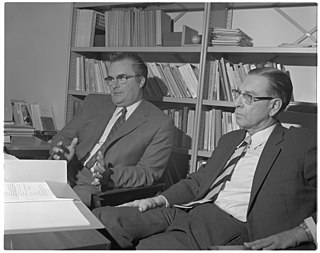
Willem Hendrik Somermeyer was a Dutch economist, Professor in Econometrics at the Erasmus University Rotterdam, and member of the Royal Netherlands Academy of Arts and Sciences, particularly known for his consumption-savings model.

Coenraad Nicolaas (Coen) Teulings is a Dutch economist and distinguished professor at Utrecht University. He was formerly professor of Economics at the University of Amsterdam and the University of Cambridge and former Director of the Bureau for Economic Policy Analysis, as well as Chairman of Merifin Capital.
Mary Elizabeth Schaps, also known as Malka Elisheva Schaps, is an Israeli-American mathematician. She is Professor of Mathematics and Dean of the Faculty of Exact Sciences at Bar Ilan University. She received her Ph.D. from Harvard University, and has published in deformation theory, group theory, and representation theory. She is also a writer, authoring several novels under the pseudonym Rachel Pomerantz.
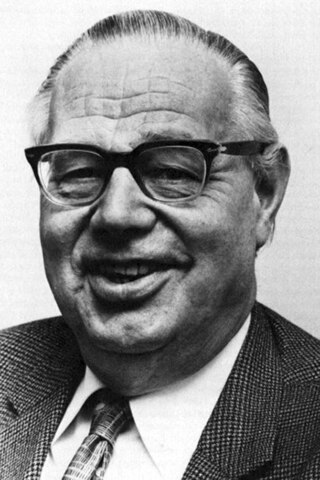
Jan Gerrit van Gelder was a Dutch art historian.
Willem Gerrit "Wim" Mook was a Dutch isotope physicist.

Eric Marcus Opdam is a Dutch mathematician, specializing in algebra and harmonic analysis. He is one of the two namesakes of Heckman–Opdam polynomials.
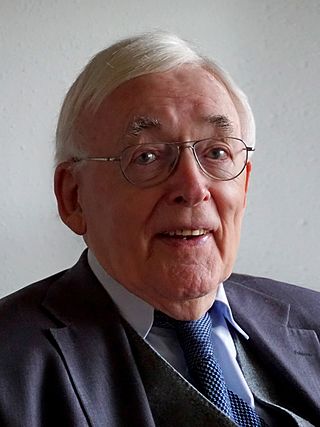
Johannes"Hans"de Vries was a Dutch economic historian of the De Nederlandsche Bank.
References
- 1 2 3 "Dr. Benjamin Willem de Vries". Bar-Ilan University. 20 September 2015. Archived from the original on 28 November 2015.
- ↑ "Benjamin de Vries". Royal Netherlands Academy of Arts and Sciences. Archived from the original on 23 August 2017.